Last Updated on December 22, 2025 by Emma Fajcz | Published: March 16, 2017
If you want to get to know southern Spain, Granada is a city that you cannot miss. Granada encompasses all the best of Andalusia: vibrant colors, both beach and mountains, friendly people and amazing food. However, Granada is also different from every other city in the south. Granada was the last holdout during the Christian reconquest of Spain. Over 800 years of Muslim rule left an indelible mark on the city. If you want to get to know this unique city, come along with us as we outline the top 10 things to see in Granada.
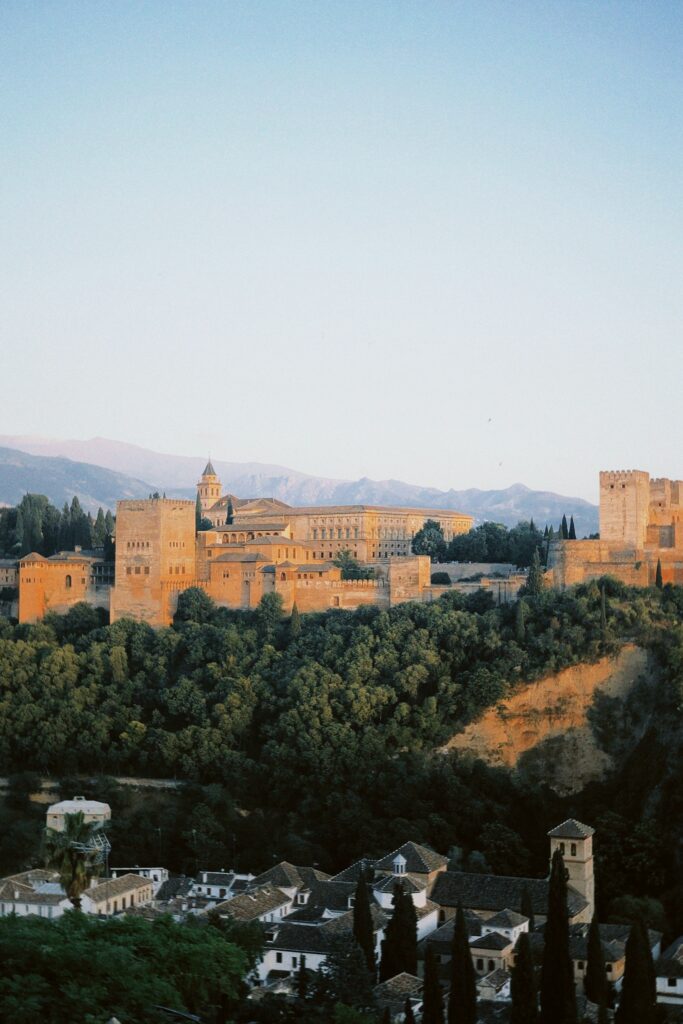
The breathtaking beauty of the Alhambra
It may go without saying that the Alhambra is the most essential of all the things to see in Granada. This palace and fortress complex is part of the legacy left by the Muslim rulers of the Iberian Peninsula. It has three components, each one well-deserving of a visit. The Alcazaba fortress, the military part of the complex, is one of the oldest areas of the whole Alhambra. The Nasrid Palaces are the most famous and visited zone, made up of three different palaces. Finally, the Generalife is another palace with impressive gardens. Those who lived here used it as an escape from typical palace life.
To ensure that you dedicate this wonder the time that it deserves, plan to spend half a day here. The easiest way to buy Alhambra tickets is online ahead of time. Tickets will include a 30-minute window for your entry to the Nasrid Palaces. Be aware that you still may need to wait in line to get in, so plan your arrival accordingly! You can visit other parts of the fortress before and after your scheduled entry time to the Nasrid Palaces. Once inside, you can stay as long as you need. Just make sure to arrive during your 30 minute window.
Set aside several hours to stroll through the palaces and gardens when you visit the Alhambra. Photo credit: Isak Gundrosen
The Arc of Elvira and more on Calle Elvira
Calle Elvira is a colorful and lively street on the edge of the Albayzín neighborhood. This charming street is one of the best things to see in Granada to get an understanding of the city’s unique atmosphere. Tapas bars, restaurants, places to shop and tea houses line Calle Elvira. Granada’s Middle Eastern and North African influences are evident on this stretch of road. Take some time to explore it and pop into any shops that catch your eye. Rest at the outdoor terrace of a café or with a cup of tea and a sweet inside one of the typical tea houses. At one end of Calle Elvira, you’ll find the Arc of Elvira, which used to be the main entrance to the city.
Insider’s Tip: For the best ice cream in the city, try Los Italianos, just off Calle Elvira. They may serve Italian-style gelato, but this is as local as you can get. Definitely considered the best ice cream in Granada by residents (as evident by the long lines in the afternoon), we consider it a must while walking the streets of Granada.
Sunset over the Alhambra
The Mirador de San Nicolás is a must on any list of things to see in Granada. Popular with students from the University of Granada and tourists alike, this lookout is often crowded, but well worth the visit. Enjoy the soundtrack provided by the street performers as you pay a visit to admire the Alhambra at any time of day. If you don’t mind the crowds, this spot provides one of the best sunsets in all of Spain.
The Granada tapas scene like a local
Free tapas are king in Granada. Make sure to add the inside of a traditional tapas bar to your list of things to see in Granada! While many cities in Spain long ago abandoned the custom of giving free tapas with the purchase of a drink, Granadinos are holding on tight to this tasty tradition. And with Granada’s typical food, you know it is tasty! You may get fried fish in Los Diamantes or a piece of Spanish omelet in Bodegas Castañeda—regardless, it’s going to be delicious!
The shops of the Alcaicería
The Alcaicería is Granada’s Grand Bazaar. The colors and atmosphere of its shops are one of the things to see in Granada! In the 15th century, a series of streets full of shops made up the original Alcaicería. It burned down in the 19th century and, since being rebuilt, only one section of the original remains. Many of the shops sell souvenirs. If you’re interested in Granada’s regional fajalauza ceramics, this is one place to look. While you’re in the area, make sure to visit the nearby Plaza Bib-Rambla. It’s a great place to sit down and have a drink or a bite to eat as you watch the world go by.
The Sacromonte neighborhood
Sacromonte is an area where the Roma community of Granada live. The houses are traditional dwellings built into whitewashed caves. As you can imagine, it is one of the most picturesque neighborhoods of Granada. Sacromonte has been an important place in the development of flamenco through the years, but lately the shows around here have become quite touristy. While we wouldn’t recommend seeing flamenco here, the area is still worth a visit for the lovely local hospitality and incredible views.
The winding streets of the Albayzín
Narrow, maze-like streets from the days before cars make up this neighborhood, which is one of the best things to see in Granada. The Albayzín is home to the Mirador de San Nicolás. Plan in some time to explore the area before or after your visit to the famous lookout. Ditch your map and soak up the ambiance as you wander the streets. Since the neighborhood is built on a hill in front of the Alhambra, you will be treated to peeks of it around every corner. Sit down in one of the charming plazas to enjoy a drink, or just roam and see where you end up!
The Granada of the past on Carrera del Darro
Carrera del Darro is a scenic cobblestone road raised above Granada’s river Darro. A stroll down this street will make you feel like you’ve traveled back in time to a Granada from years ago. One of the most famous elements of this path are its two arched footbridges that connect the street to life on the other side of the river.
At the eastern end of the road, Carrera del Darro turns into Paseo del Padre Manjón, also known as Paseo de los Tristes. At this point, you are treated to a view of the impressive towers of the Alhambra poking up over the tree-studded hills. Sit for a moment and take in the sights. If you can forget the buildings behind you, it’s not hard to imagine that you’ve been transported back to the 14th century, when the Alhambra was the palace of Sultan of Granada.
The Granada of the future at Science Park
Ready to come back to the 21st century? Head to Granada’s modern Science Park! This interactive museum features exhibitions on health, the environment, astronomy, and much more. This museum has something for everyone, but visit with a child to get the most out of it. The Parque de las Ciencias also features abundant green spaces, including a butterfly house, maze, and astronomy garden. They are the perfect place to spend time on a sunny day.
A Renaissance masterpiece
Granada’s cathedral, like many in Spain, is beautiful inside and out. But there are two things that really set it apart. First, the cathedral was not constructed until after the Christian reconquest of the city. As we mentioned, Granada remained under Muslim rule until 1492, longer than anywhere else on the Iberian Peninsula. Many Gothic cathedrals were built during this period in Spain because that was the architectural style of the time. But by the time Granada’s cathedral was to be built, the Spanish Renaissance style had begun to take hold, and was the one used in this cathedral. This different style is one thing that makes Granada’s cathedral stand out from the crowd.
The second unique aspect of this cathedral is that Spain’s Catholic Monarchs, Queen Isabella I of Castile and King Ferdinand II of Aragon, are buried in the Royal Chapel next door. Isabella and Ferdinand’s great cause was uniting Spain’s different regions and completing the Christian reconquest of the Iberian Peninsula, which they achieved. Granada’s cathedral was intended to be Spain’s royal mausoleum, not just for Isabella and Ferdinand, but for all Spanish monarchs. If you’ve ever visited El Escorial, you know that this didn’t end up happening! Philip II made El Escorial the royal mausoleum for his father, and all the kings who have come after him. Although there aren’t as many kings here as at El Escorial, it’s still one of the interesting things to see in Granada.
This blog post was originally posted on March 16, 2017, and was updated on April 17, 2019.
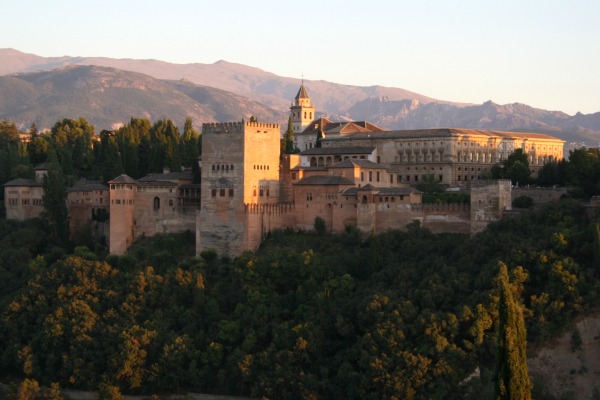
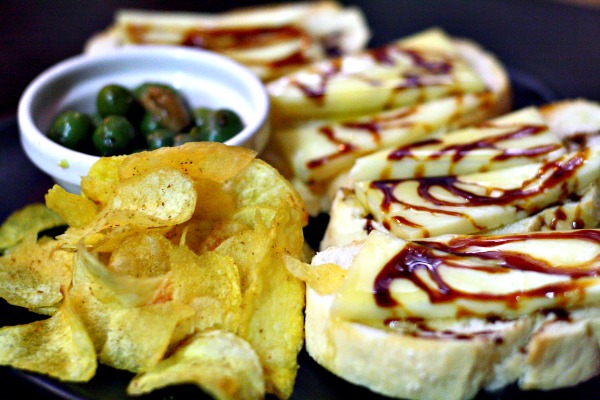
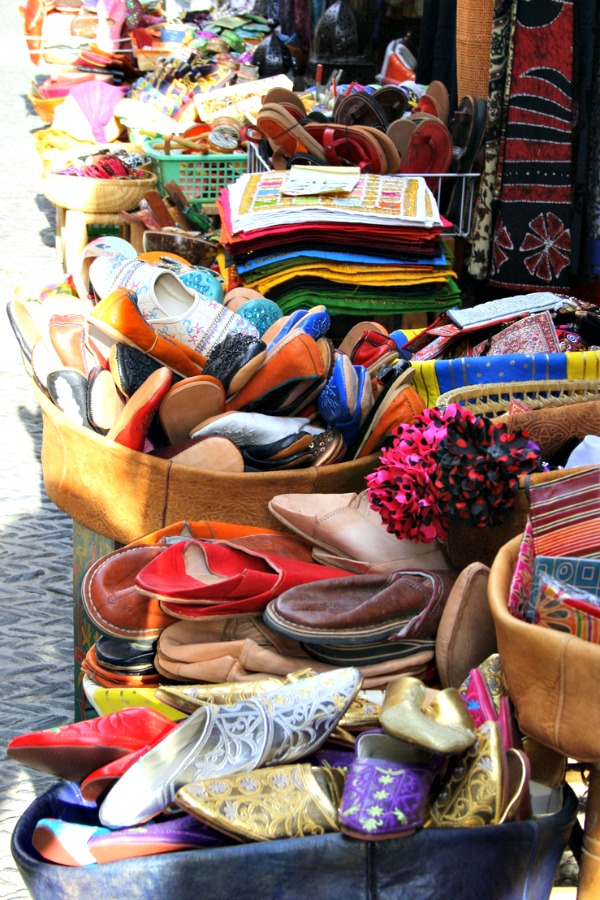
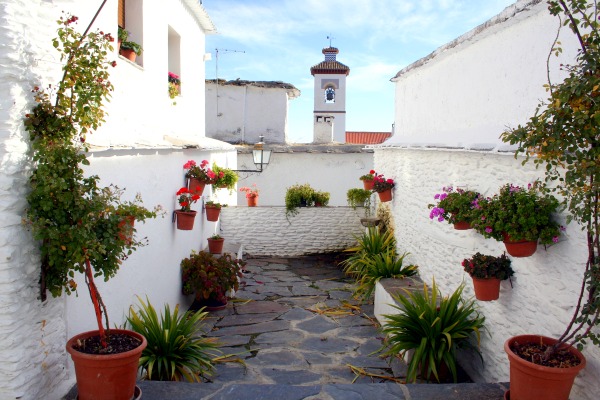
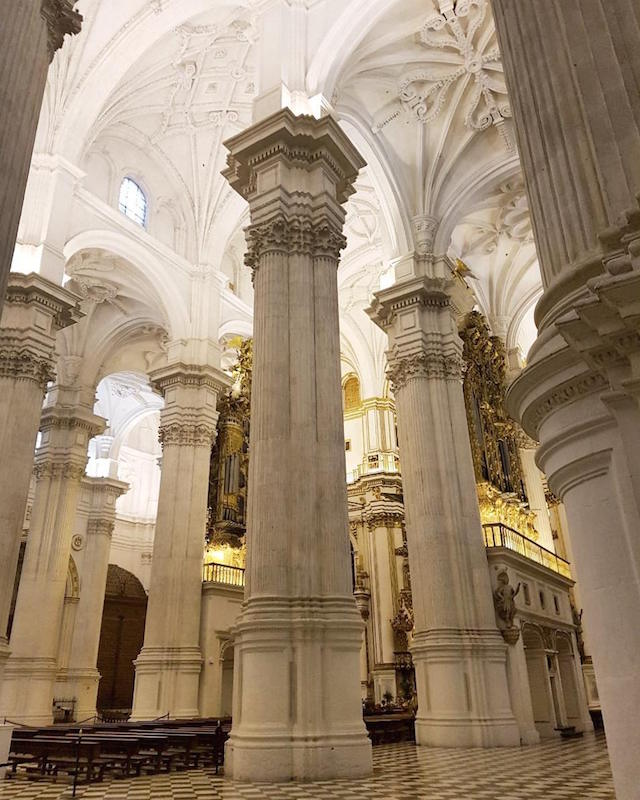
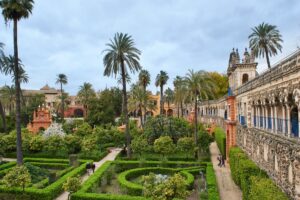








Thanks -= really useful. Just planning our first trip to Granada, and your ‘pocket guide’ is a big help.
So happy to hear it, Chris!! We’ll see you here soon!